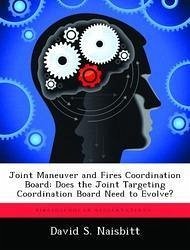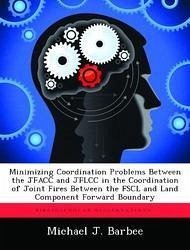
What's the 411 for US Army Operational Level Fires
Versandkostenfrei!
Versandfertig in über 4 Wochen
15,99 €
inkl. MwSt.

PAYBACK Punkte
8 °P sammeln!
In March 1999, military planners considered contingencies in event that the air campaign to remove Serbian forces from Kosovo during Operation Allied Force was not successful. One of those contingencies was a ground offensive, which presented numerous challenges to the Army. Some of the most demanding challenges centered around planning fires at the operational level of war. Inevitably, planners accepted the potential dilemma of fighting Serb forces in a dynamic environment to meet the military objective of forcing Serb forces out of Kosovo. Planning for the Kosovo ground offensive indicated t...
In March 1999, military planners considered contingencies in event that the air campaign to remove Serbian forces from Kosovo during Operation Allied Force was not successful. One of those contingencies was a ground offensive, which presented numerous challenges to the Army. Some of the most demanding challenges centered around planning fires at the operational level of war. Inevitably, planners accepted the potential dilemma of fighting Serb forces in a dynamic environment to meet the military objective of forcing Serb forces out of Kosovo. Planning for the Kosovo ground offensive indicated that serious shortfalls may exist in doctrine at the operational level, especially involving US Army operational level fires. The primary planning manuals for US Army operational level fires are JP 3-09, Doctrine for Joint Fire Support, FM 100- 7, Decisive Force: The Army in Theater Operations, and FM 6-20-30, Fire Support for Corps and Division Operations. These doctrinal manuals do provide utility at the operational level for fire support planners and with minor revision can become more effective. This monograph supports this argument by: 1) defining operational level fires; 2) defining current US Army and joint fire support doctrine and examining how its execution is affected by the operational level of war; 3) providing observations regarding fire support problems and successes at the operational level, especially in the US Army's Desert Storm campaign in 1991 and the Russian army's Chechen campaign in 1994-1995; and 4) identifying fire support observations in Operation Desert Storm and the Chechen campaign that impact current operational level fire support doctrine. This monograph identified that the principles for joint fire support coordination defined in JP 3-09 are paramount to the US Army successfully planning operational level fires. This work has been selected by scholars as being culturally important, and is part of the knowledge base of civilization as we know it. This work was reproduced from the original artifact, and remains as true to the original work as possible. Therefore, you will see the original copyright references, library stamps (as most of these works have been housed in our most important libraries around the world), and other notations in the work. This work is in the public domain in the United States of America, and possibly other nations. Within the United States, you may freely copy and distribute this work, as no entity (individual or corporate) has a copyright on the body of the work. As a reproduction of a historical artifact, this work may contain missing or blurred pages, poor pictures, errant marks, etc. Scholars believe, and we concur, that this work is important enough to be preserved, reproduced, and made generally available to the public. We appreciate your support of the preservation process, and thank you for being an important part of keeping this knowledge alive and relevant.














